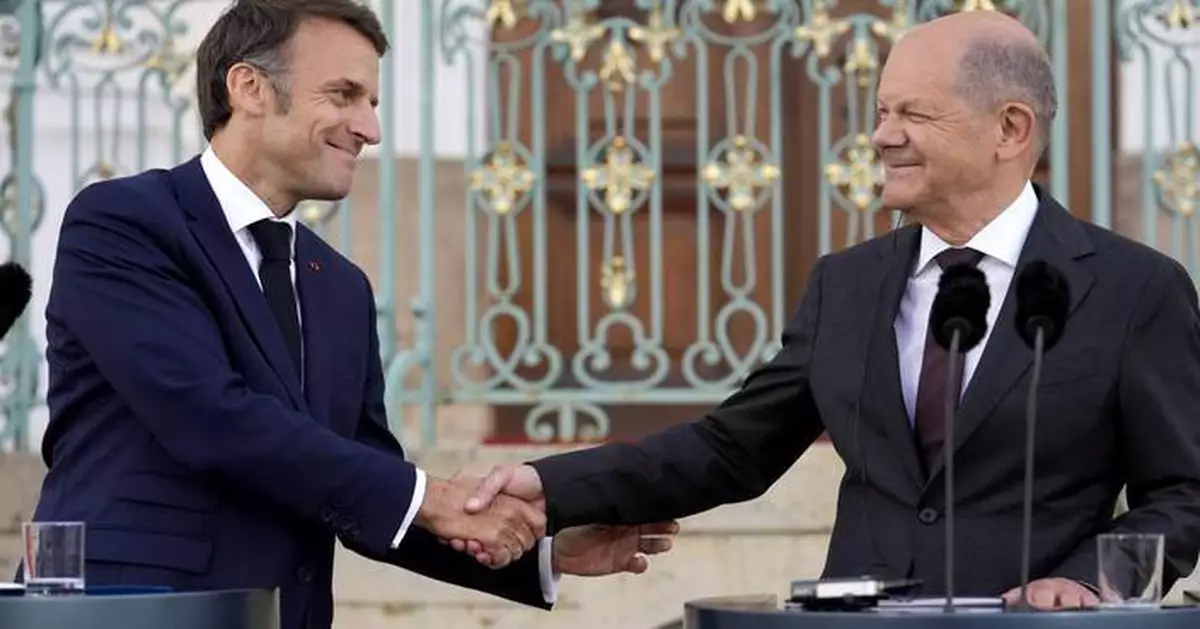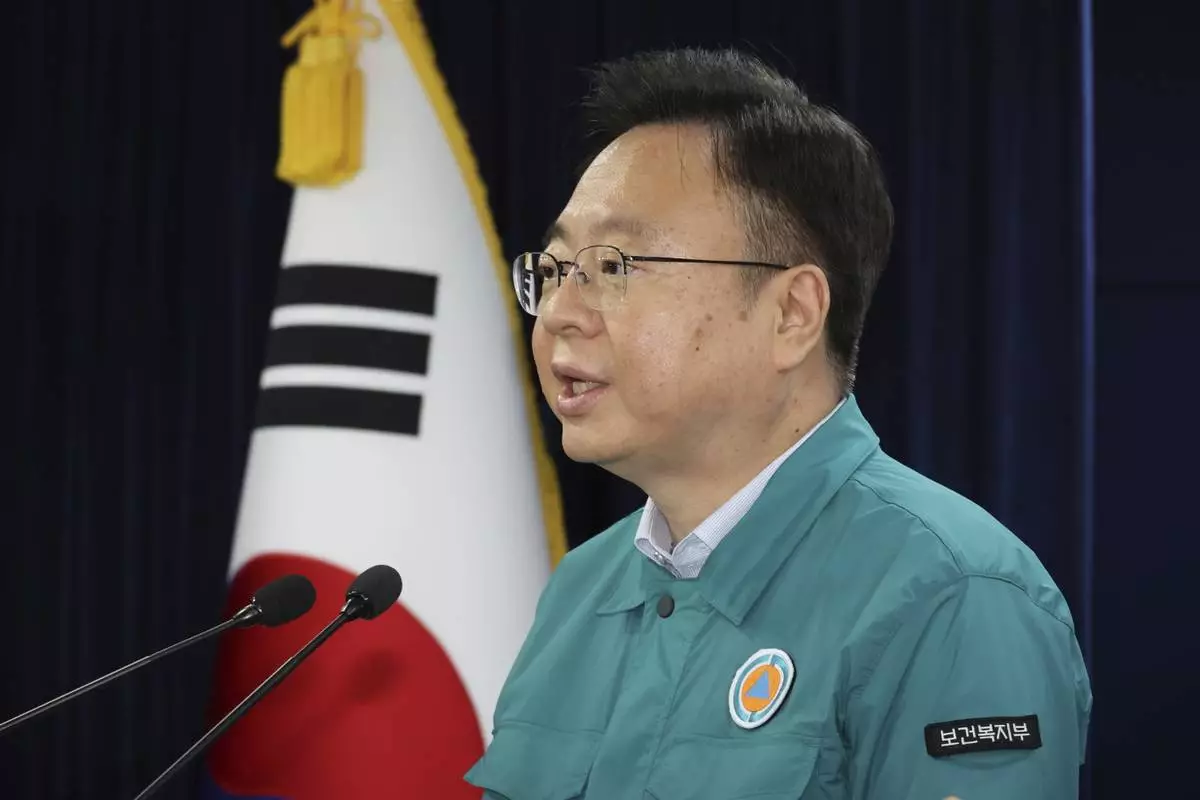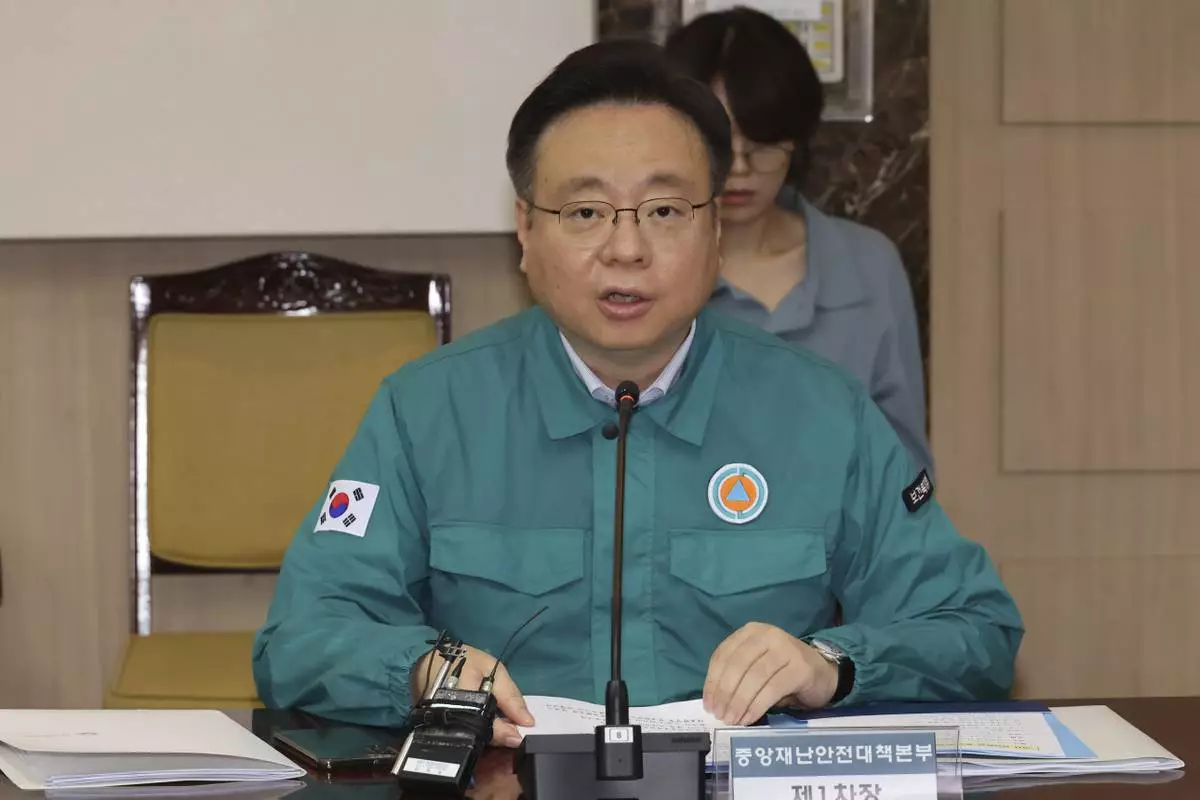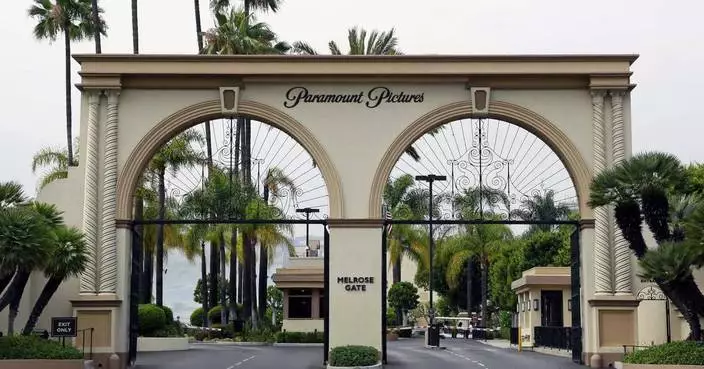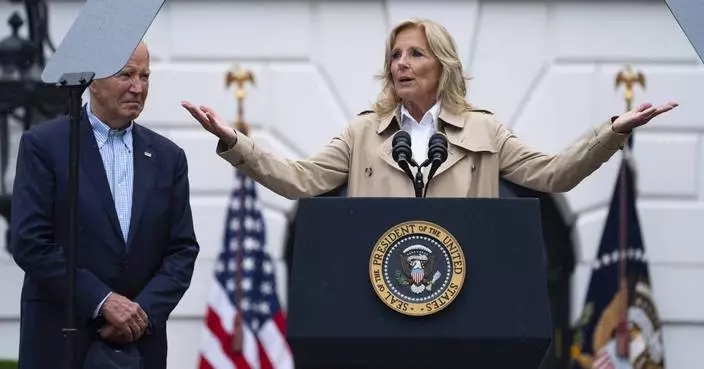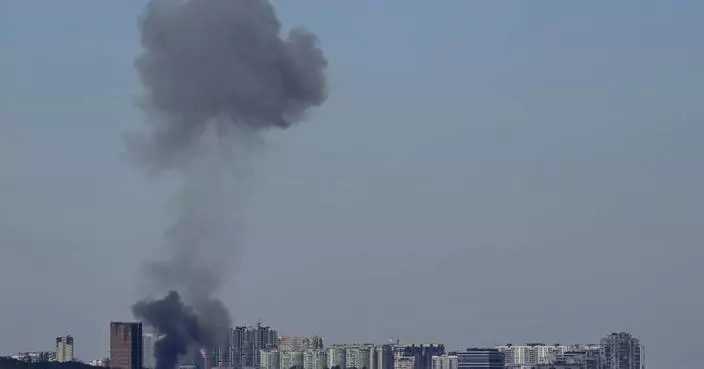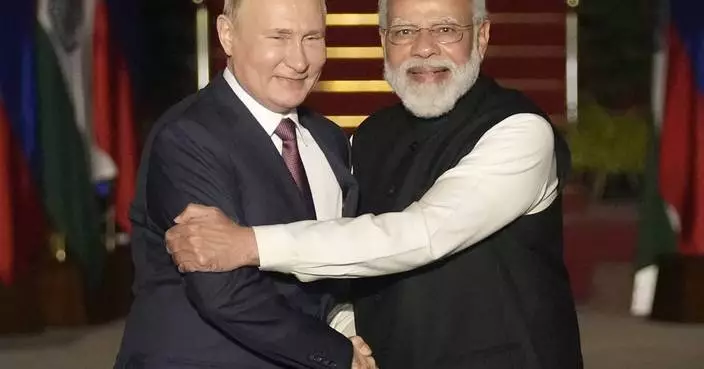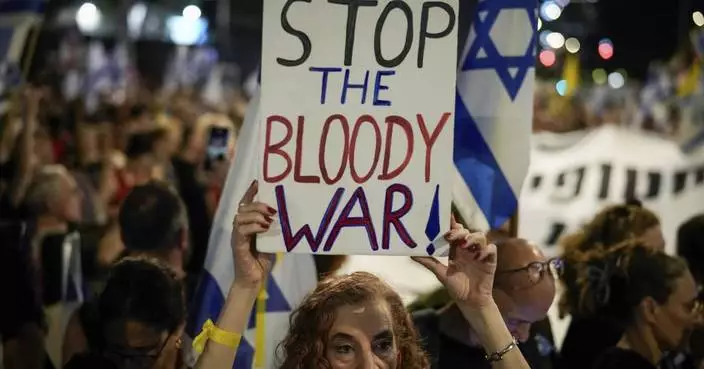BERLIN (AP) — German Chancellor Olaf Scholz is worried about the outcome of the runoff elections in France.
Scholz, who is normally tightlipped when asked about domestic politics in other European countries, has in recent weeks more than once expressed concern that the far-right, nationalist National Rally may win a parliamentary majority in the second round of elections in neighboring France on Sunday, allowing the party to form a new government.
Earlier this week, the decidedly pro-European Scholz even revealed that he and beleaguered French President Emmanuel Macron are texting on a daily basis as the election draws closer.
“We are discussing the situation, which is really depressing," Scholz said at a summer gathering of his Social Democratic Party in Berlin on Tuesday, according to German news agency dpa.
“In any case, I am keeping my fingers crossed that the French, whom I love and appreciate so much, the country that means so much to me, will succeed in preventing a government led by a right-wing populist party," Scholz added in an unusually emotional way.
The German chancellor's concerns may be well-founded. If the French give the far-right nationalist party a majority on Sunday, German-French ties are likely to deteriorate, with effects felt across the European Union, experts say.
The specter of a far-right government in France comes after the European Parliament elections last month strengthened hard-right parties overall, though their performance varied from country to country. In Germany, the far-right Alternative for Germany also surged.
Several countries in the EU such as Italy, the Netherlands or Sweden have veered to the right in national elections as voters cast their ballots for euroskeptic parties promising nationalist solutions for European issues such as inflation, migration, and Russia’s brutal war on Ukraine that has brought in millions of refugees looking for shelter.
Germany and France, the EU's two biggest economies, have long been viewed as the engine of European integration. The two countries in the heart of Europe have overcome hundreds of years of wars and animosity and, after the end of World War II, built a close relationship..
Both countries are founding members of the European Union, which was created in large part to prevent a new war between Germany and France given their bellicose history.
Generations of high school students have participated in exchange programs, there are city partnerships, regular bilateral government consultations, joint arms projects, and, countless binational German-French families living in both countries.
However, the National Rally has pursued a “France First” policy. It wants to move away from the close partnership of France and Germany, experts say, which would be a turnaround from decades of close and celebrated friendship.
Even though the leaders of the two countries have had political differences in the past over topics such as how strongly to support Ukraine in defending itself against Russia, they have — until now — always tried to coordinate their positions on the EU and their foreign policy.
“German-French relations are actually unique in international politics in terms of their cooperation and intensity," says Ronja Kempin, an analyst of Franco-German relations at the German Institute for International and Security Affairs.
It comes therefore as no surprise that “in Berlin, people are now particularly nervous about the fact that the National Rally in France could represent a party with a large majority in parliament that is very critical of Germany, perhaps even hostile to Germany," she added.
Even though National Rally party leader Jordan Bardella said last month that if he becomes France's prime minister, he hopes "to have the occasion and the opportunity to talk with the German chancellor,” he has also stressed that he would defend his country's interests and sees Scholz as a political rival.
Germany, which is the EU's most populous country and has the continent's biggest economy, is often perceived by its European neighbors as overpowering and dominant in the 27-country bloc. Populist parties in particular have been using this sentiment to rile up voters.
If a future far-right French government were to join that choir of nationalists, it would have repercussions for all of the EU, says Jacob Ross, an expert on Franco-German relations at the German Council on Foreign Relations.
“Many EU projects could potentially be blocked,” he said adding that future cooperation on European financial and banking policies, European armaments projects, and everyday collaboration on the EU's administrative level could suffer.
The further expansion of the EU, which Scholz has been advocating, could also be in question, Ross said.
"The National Rally is certainly not a supporter of rapid EU expansion into the Western Balkans, and certainly not into Ukraine or Georgia,” he added.
Despite the potentially grim outlook, some European political veterans think that German-French relations are too strong to fail.
While being potentially forced to work with a far-right prime minister, French President Emmanuel Macron would still hold some powers over foreign policy, European affairs and defense, in line with the Constitution. He has a presidential mandate until 2027, has said he won’t step down before the end of his term.
Martin Schulz, the former president of the European parliament and a member of Scholz's Social Democrats, says that the relationship is close that even a populist government cannot derail it.
“No French president can do without Germany and, conversely, no German chancellor can do without France,” Schulz told the weekly publication Der Spiegel on Thursday. “The two countries are too intertwined for that — economically, in terms of monetary policy, socially and culturally.”
“After all these decades of cooperation, no one can flip the switch from one day to the next and unwind this connection. The majority of people in France are also interested in a close relationship with Germany,” he added. “So: Franco-German relations will continue — the question is in what form.”
Sylvie Corbet contributed reporting from Paris.
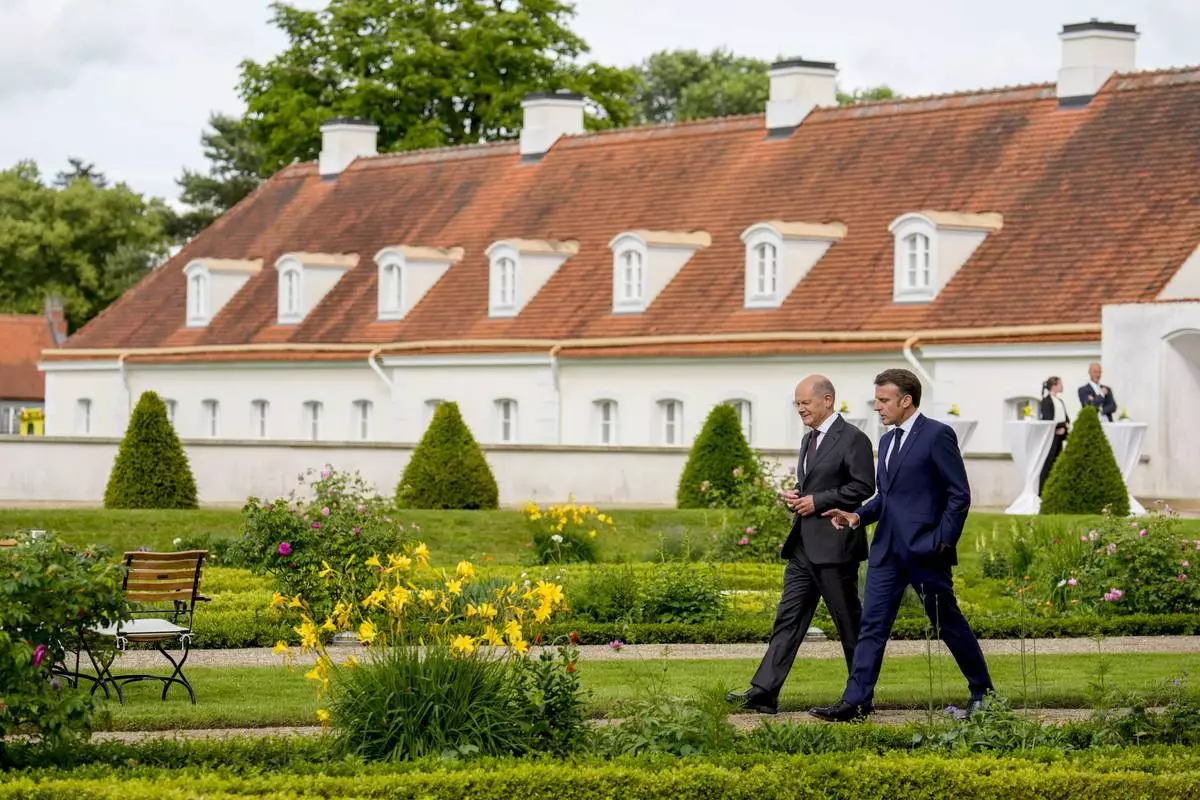
FILE - German Chancellor Olaf Scholz, left, and French President Emmanuel Macron walk through the garden of the German government guest house Meseberg Palace to the Franco-German Ministerial Council in Meseberg, north of Berlin, Germany, on May 28, 2024. The German government has expressed concern about a possible victory of the far-right National Rally in France. Chancellor Scholz and many ordinary Germans fears that if the the nationalist French party gets elected on Sunday, it would no longer support the close and unique relationship between the two countries that was carefully built over decades since the end of World War II. (AP Photo/Ebrahim Noroozi, Pool)
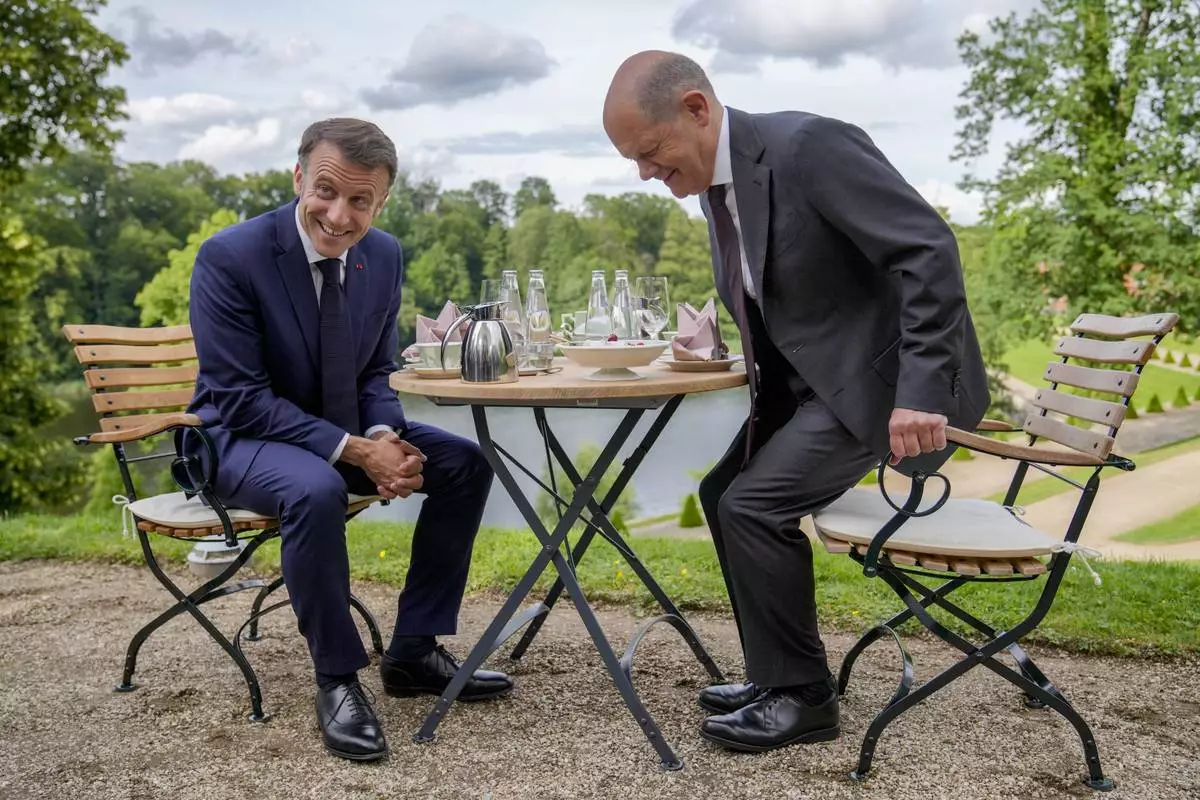
FILE - German Chancellor Olaf Scholz, right, and French President Emmanuel Macron sit at a table in the garden of the German government guest house in Meseberg, north of Berlin, Germany, on May 28, 2024. (AP Photo/Ebrahim Noroozi, Pool)
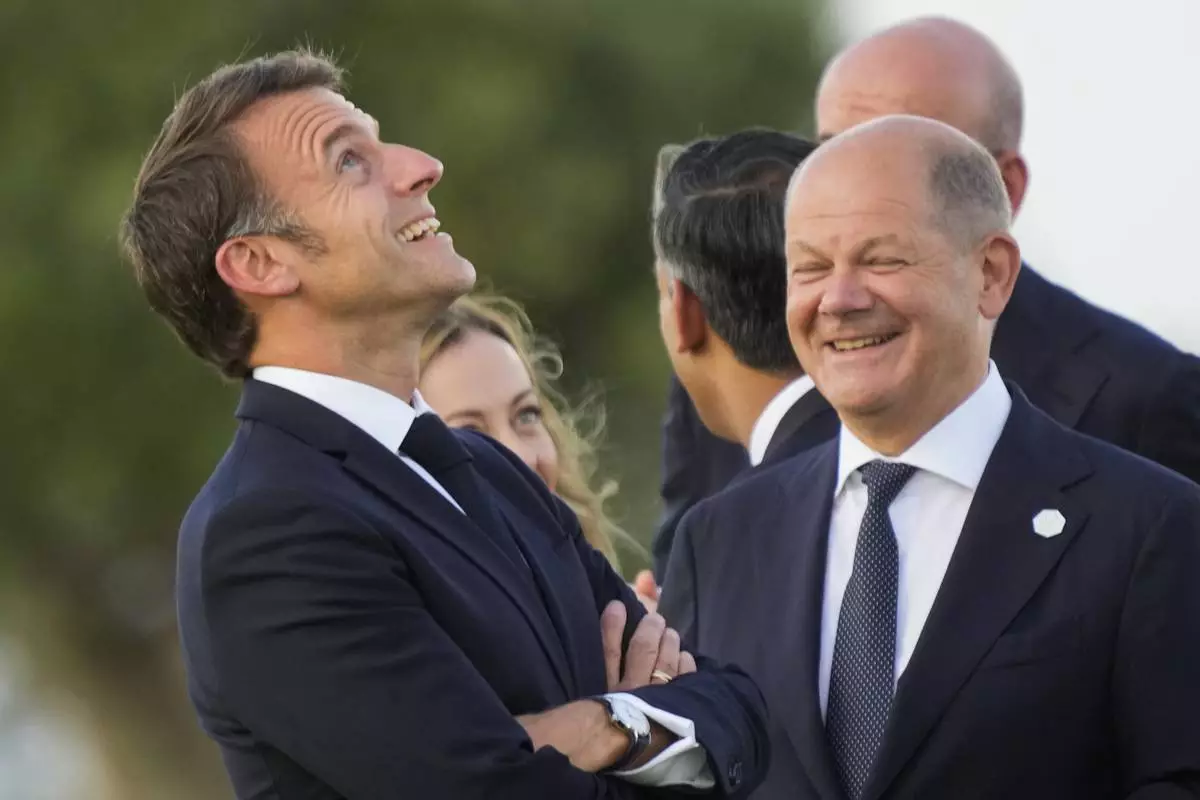
FILE - French President Emmanuel Macron, left, talks to German Chancellor Olaf Scholz as they watch a skydiving demo during the G7 world leaders summit at Borgo Egnazia, Italy, on June 13, 2024. The German government has expressed concern about a possible victory of the far-right National Rally in France. Chancellor Scholz and many ordinary Germans fears that if the the nationalist French party gets elected on Sunday, it would no longer support the close and unique relationship between the two countries that was carefully built over decades since the end of World War II. (AP Photo/Luca Bruno)
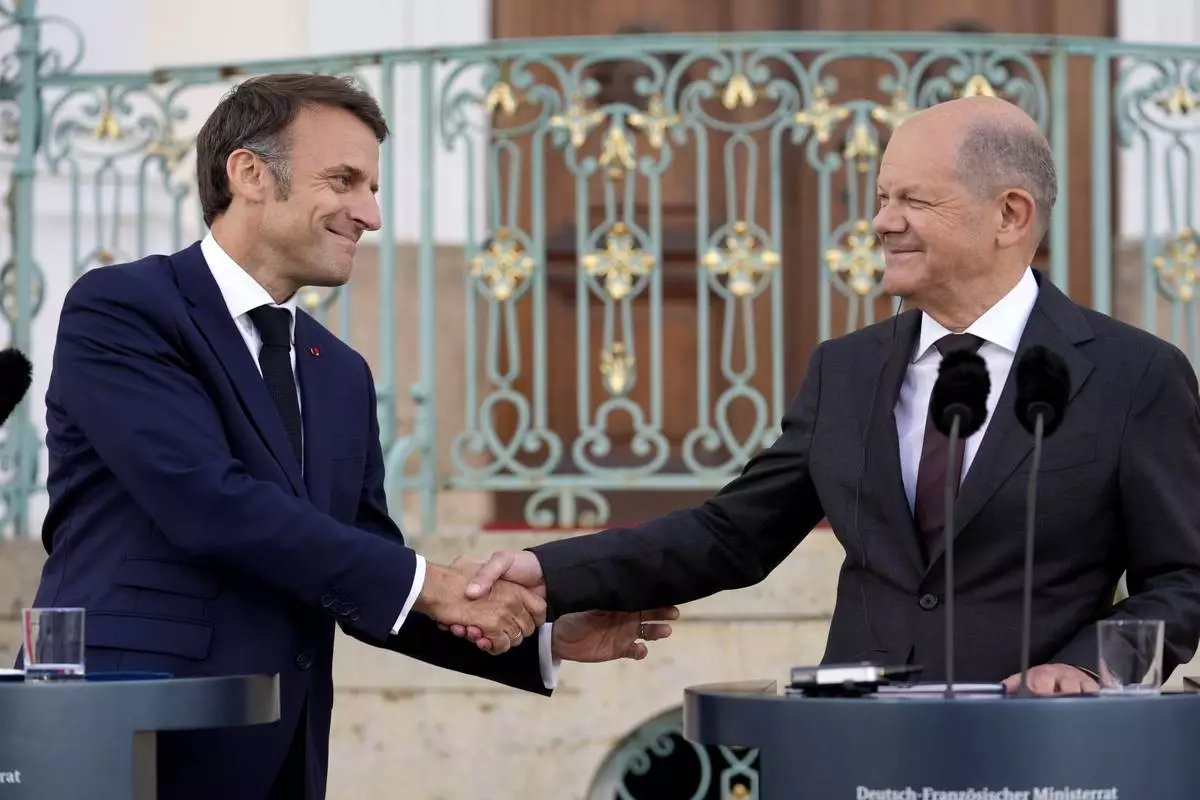
FILE - German Chancellor Olaf Scholz, right, and French President Emmanuel Macron shake hands during a press conference at the German government guest house in Meseberg, north of Berlin, Germany, on May 28, 2024. The German government has expressed concern about a possible victory of the far-right National Rally in France. Chancellor Scholz and many ordinary Germans fears that if the the nationalist French party gets elected on Sunday, it would no longer support the close and unique relationship between the two countries that was carefully built over decades since the end of World War II.(AP Photo/Ebrahim Noroozi)


